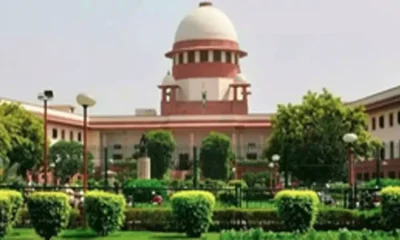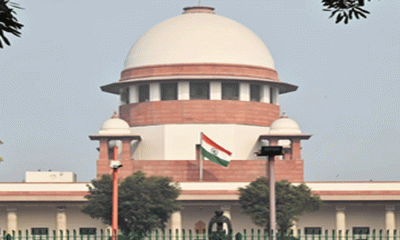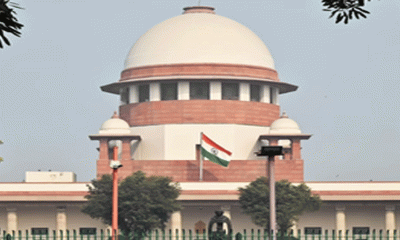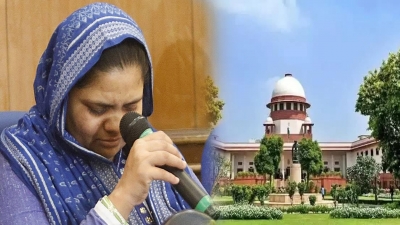National News
Supreme Court to examine if petitions challenging sedition law should be referred to larger bench
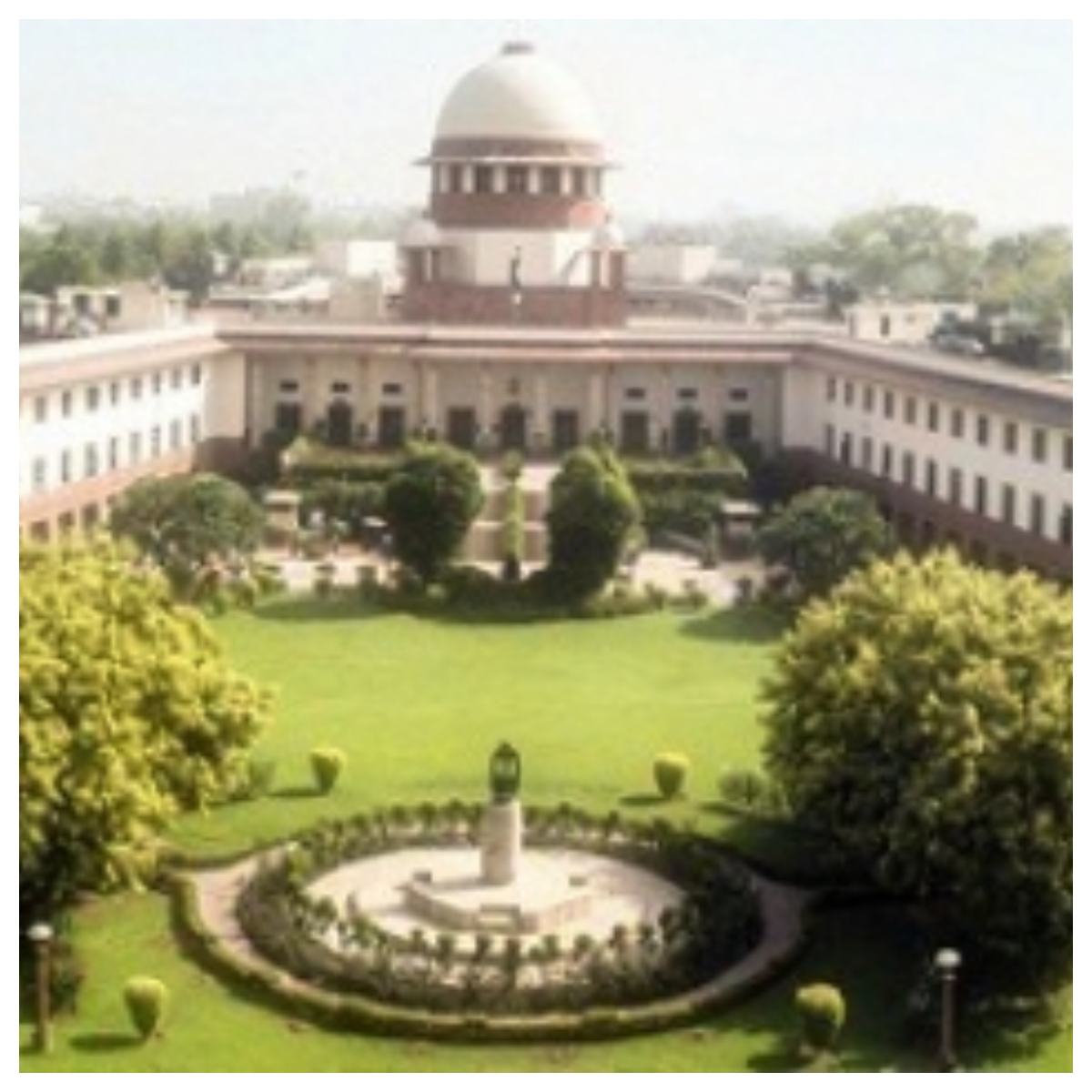
The Supreme Court on Thursday gave last opportunity to Centre to file its response on petitions challenging the sedition law, and also agreed to hear arguments on whether the case should be referred to a larger bench.
At the outset, Solicitor General Tushar Mehta, representing the Centre, submitted before a bench, headed by Chief Justice N.V. Ramana, that a draft is ready in the case and it is awaiting approval from competent authority, and sought an extension to file the counter affidavit.
As the Chief Justice told Mehta that 9 or 10 months ago, notice was issued on the petitions, and asked him to argue without the counter-affidavit, Mehta mentioned that fresh matters have been filed in the case and requested the court to grant more time — given the nature of the matter and its repercussions.
At this the bench, also comprising Justices Surya Kant and Hima Kohli, said: “It is a question of law and we are sure you can assist us in the matter. What is the issue?”
However, Attorney General K.K. Venugopal said he is ready to argue the matter.
He said the sedition law is valid, in view of the Kedar Nath Singh case judgement (1962), which balanced freedom of speech and security of state.
Urging the top court to lay down guidelines to prevent misuse of the law, he said: “Misuse (of the sedition law) is controlled… the question of reference (of Kedar Nath Singh case to a larger bench) does not arise.”
The Supreme Court in the Kedar Nath Singh case clarified that only those acts, which involved incitement to violence or violence, constituted a seditious act under Section 124 A of the IPC.
The AG, who is assisting the court in personal capacity, said: “You’ve seen what’s happening in the country…someone was detained as they wanted to recite Hanuman Chalisa, they’ve been released on bail…the single most important thing is what is permissible and what is not permissible… this is very important.”
The AG was referring to the case of the Rana couple in Mumbai, who were charged with sedition for wanting to recite the Hanuman Chalisa as he emphasised that the law should not be repealed, rather more clearly defined.
Senior advocate Kapil Sibal, representing one of the petitioners, submitted that the three-judge bench can consider the matter, instead of referring to a larger bench.
“Colonial masters do not control us anymore. We own our own destiny… no longer subjects of the crown,” he said, adding that the three-judge bench can go into the issue ignoring Kedar Nath.
As Sibal added that his client’s petition did not seek reconsideration of Kedar Nath, the bench, however, pointed out that other petitioners sought the reconsideration of the verdict.
Sibal elaborated that Kedar Nath judgment had confused between the state government and the Centre, and quoted what Mahatma Gandhi said about sedition offence – “It is my right to create disaffection against the government”. The AG countered that they have to show what is wrong with the Kedar Nath judgment, and added that the issue is not with the law, but with its misuse and abuse.
Venugopal argued that individual cases can be examined, where the law was implemented in a bad way, and opposed referring the petitions against sedition law to a larger bench. “Law which is fair and valid but is implemented in an unfair and abusive manner will not make the law unconstitutional…” he said. Sibal said many changes had taken place since the Kedar Nath Singh judgment.
After hearing arguments, the bench sought written submissions from the Centre and petitioners and scheduled the matter for hearing on question of reference to a larger bench on Tuesday.
Giving the last opportunity to Mehta to file a written response on the petitions by Monday, the bench said it will not give any further extension.
The top court was hearing petitions filed by Major General S.G. Vombatkere (retd) and the Editors Guild of India and others, challenging the constitutional validity of Section 124A which carries a maximum penalty of life imprisonment.
Vombatkere’s plea argued that a statute criminalising expression based on unconstitutionally vague definitions of ‘disaffection towards government’, etc., is an unreasonable restriction on the fundamental right to free expression guaranteed under Article 19(1)(a) and causes constitutionally impermissible ‘chilling effect’ on the speech.
Crime
CBI court sentences former oriental insurance manager to 3-year jail in bribery case
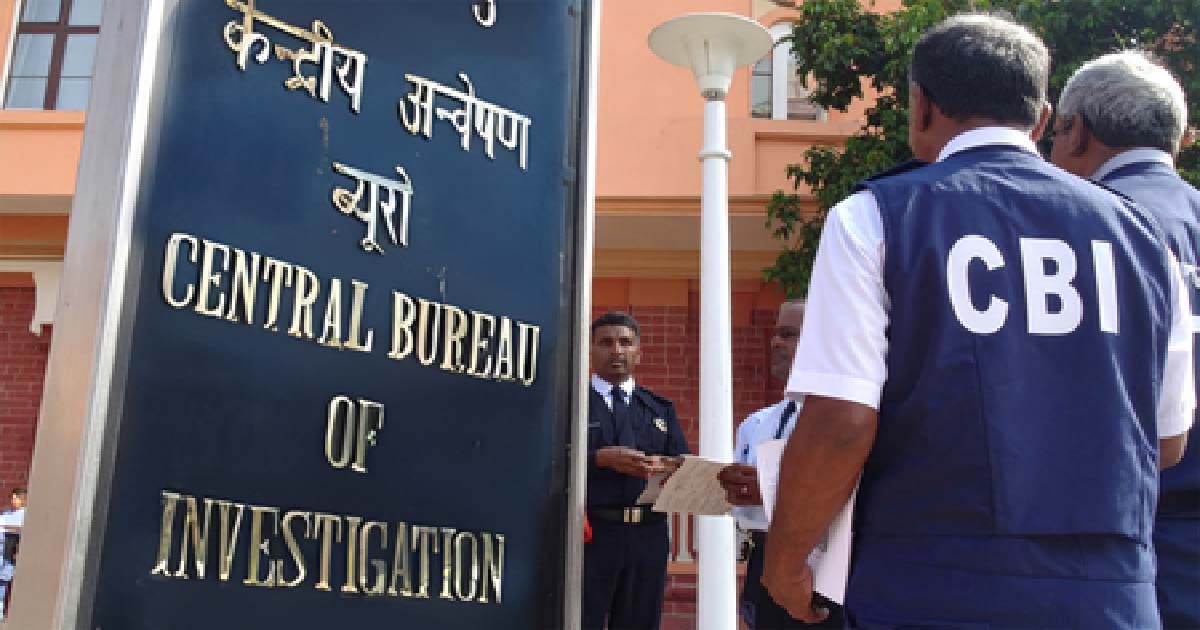
New Delhi, Nov 29: A special CBI court in Ahmedabad on Saturday sentenced former Senior Divisional Manager of Oriental Insurance Company Limited, Rajkot, Mahendra A. Loonker, to three years of rigorous imprisonment in a 13-year-old bribery case.
The court also imposed a fine of Rs 1 lakh on the former official.
According to the CBI press note, the case was registered on July 11, 2012, following a complaint by a partner of a private firm.
Loonker, then serving as Senior Divisional Manager at the insurance company’s Rajkot office, had allegedly demanded a bribe of Rs 15,000 to clear an accident insurance claim submitted by the complainant for an injured employee.
“CBI registered the instant case on July 11, 2012 against the accused person on allegations that accused Mahendra A Loonker, the then Sr. DM, Oriental Insurance Co. Ltd., Rajkot had demanded and accepted an illegal gratification of Rs 15,000 from the complainant, Partner of a private company in order to pass the Accident Insurance Claim filed by him regarding the accident and injury of his employee,” the CBI said.
CBI officials arrested Loonker the same day the FIR was filed, after he was found to have accepted the bribe.
Subsequent searches were carried out at his residence and office premises in Rajkot. Investigators later filed a chargesheet on December 3, 2012, against the accused for demanding and accepting illegal gratification and criminal misconduct committed by the accused public servant.
After examining the evidence and hearing arguments from both sides, the court held Loonker guilty and convicted him accordingly.
Meanwhile, the CBI Court in Vijayawada on Friday sentenced a former Railway official to one year of imprisonment in a nearly two-decade-old bribery case.
The court convicted Matta Dharma Rao, who was serving as Assistant Divisional Engineer with South Central Railway in Bhimavaram, West Godavari district, for demanding and accepting illegal gratification from a contractor.
Crime
No firearms used in Bihar Deputy CM Sinha’s victory procession, clarify police
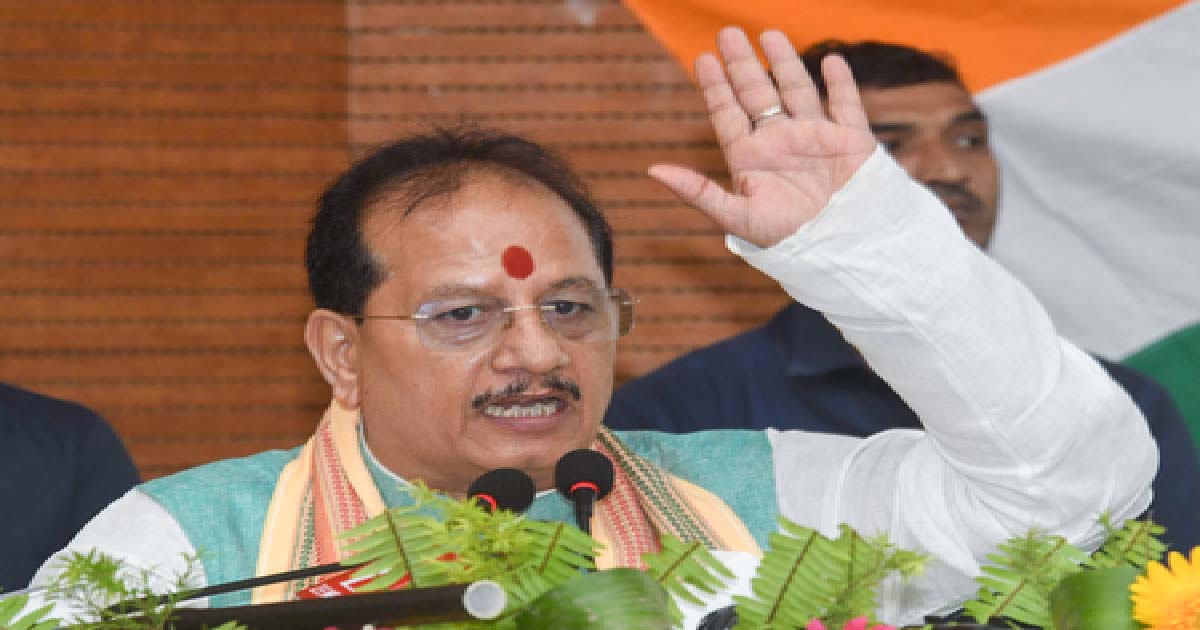
Patna, Nov 29: A day after a purported video showed supporters using guns to fire in the air during the victory march of Bihar Deputy Chief Minister Vijay Kumar Sinha in Lakhisarai, Superintendent of Police Ajay Kumar on Saturday clarified that “firecracker guns, not firearms” were used in the celebratory firing.
Vijay Kumar Sinha, who has been elected from Lakhisarai for the fifth time, was welcomed by supporters in a grand procession.
The video circulating on social media alleged that supporters used firearms, triggering sharp criticism. However, the police investigation found the claims to be misleading.
According to SP Ajay Kumar, the device seen in the video was seized and examined by an armourer.
The probe confirmed that it was not a real rifle but a firecracker gun, a device commonly used for fireworks, bird-scaring, and to chase away nilgai and boars that damage crops in the region.
“It poses no threat to life or property,” the SP said.
Locals said that such devices are traditionally used in weddings, festivals, and celebrations involving the fulfilment of vows. After verifying their statements, police released the two youths seen handling the device in the video.
The Superintendent of Police urged the public to verify the authenticity of any video or claim before sharing it online, cautioning against the spread of misinformation.
He reiterated that the firing involved only a firecracker containing gunpowder, not a live bullet.
Following the viral video, RJD leaders were quick to target the Deputy Chief Minister.
From the party’s official X handle, RJD posted, “Fire the bullet, show the double-barrelled gun, intimidate the public – the government of loud speeches has arrived. Now for five years, keep listening to sermons based on stories from 25–30 years ago, because this government is capable of nothing more than this.”
RJD spokesperson Ejaz Ahmed also criticised the administration, saying, “The gunfire that greeted Deputy Chief Minister Vijay Sinha shows the true state of affairs in Bihar. While the Home Minister talks about expelling crime and criminals, the government must clarify what action will be taken against those who created fear among the public with such firing.”
Mumbai Press Exclusive News
Jogeshwari POCSO case: Accused out on bail arrested again
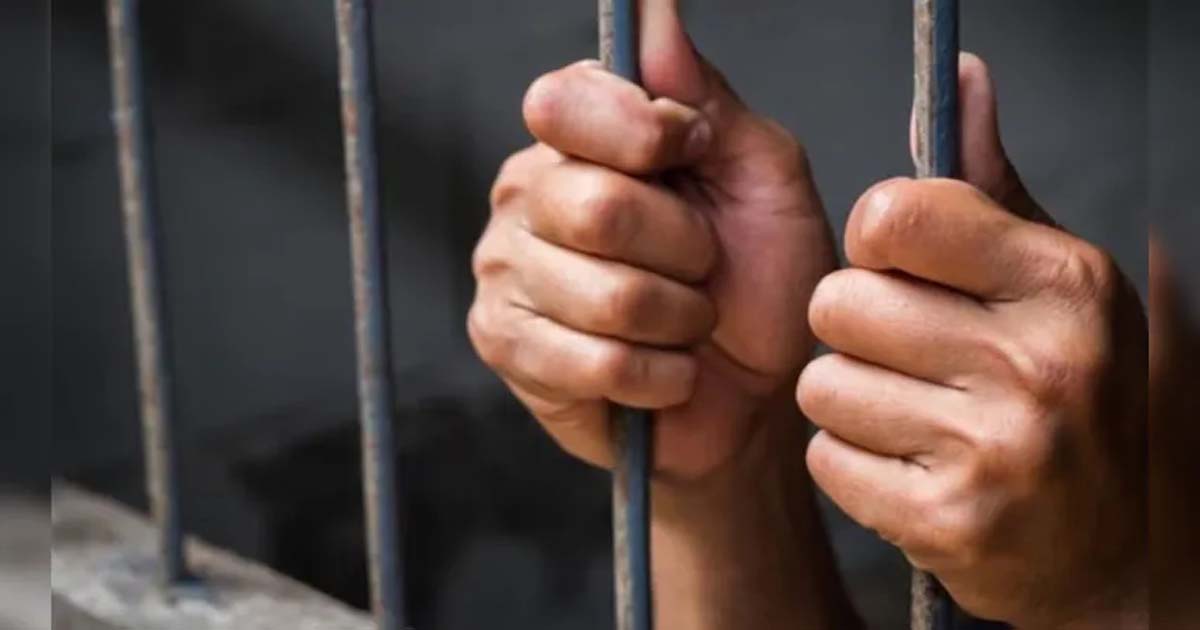
Mumbai: A fugitive accused involved in the Mumbai Pisco case has been arrested again by the Jogeshwari police after 6 years. In Jogeshwari, Mumbai, accused Pankaj Panchal, 27, was arrested in 2019 in the Pisco child abuse and exploitation case and was on bail but was absent from court proceedings and had been hiding his identity for the last 6 years. The police received information that the accused had come near the SRA building, on which the police laid a trap and succeeded in arresting the accused from Jogeshwari. The court had also issued a non-bailable warrant against him, after which the police complied with it and arrested him and presented him in the court and the court has sent him on remand. The police are investigating further. This information has been given by DCP Datta Nalawade of Mumbai Police Zone 10.
-

 Crime3 years ago
Crime3 years agoClass 10 student jumps to death in Jaipur
-

 Maharashtra1 year ago
Maharashtra1 year agoMumbai Local Train Update: Central Railway’s New Timetable Comes Into Effect; Check Full List Of Revised Timings & Stations
-

 Maharashtra1 year ago
Maharashtra1 year agoMumbai To Go Toll-Free Tonight! Maharashtra Govt Announces Complete Toll Waiver For Light Motor Vehicles At All 5 Entry Points Of City
-

 Maharashtra1 year ago
Maharashtra1 year agoFalse photo of Imtiaz Jaleel’s rally, exposing the fooling conspiracy
-

 National News1 year ago
National News1 year agoMinistry of Railways rolls out Special Drive 4.0 with focus on digitisation, cleanliness, inclusiveness and grievance redressal
-

 Maharashtra1 year ago
Maharashtra1 year agoMaharashtra Elections 2024: Mumbai Metro & BEST Services Extended Till Midnight On Voting Day
-

 National News1 year ago
National News1 year agoJ&K: 4 Jawans Killed, 28 Injured After Bus Carrying BSF Personnel For Poll Duty Falls Into Gorge In Budgam; Terrifying Visuals Surface
-

 Crime1 year ago
Crime1 year agoBaba Siddique Murder: Mumbai Police Unable To Get Lawrence Bishnoi Custody Due To Home Ministry Order, Says Report



